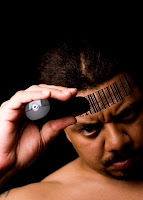We’ve all confessed it at some point or other – we’d be useless without our smartphones, and dead without the internet. A lot of our distress comes from our inability to make decisions without digital input. Here are some services we depend on and the trouble that ensues when we lose them.
So I was sitting in my curb-side parked car, facing the wrong way on a busy street in an unfamiliar part of town in the disorienting dark of night. No biggie – I have an iPhone. Out comes the phone, up comes Google Maps, and…PANIC! I see only taupe-colored grids surrounding the blue dot that is my car. No streets, no highways, and no indication of which direction I could or should be headed.
Now, I’ve always said that people who rely on GPS for directions are silly; I think everyone should know how to read a map (you, too, Diana!). But what happens when we rely on digital maps that will not load? My phone told me I had four bars of Edge network, but nothing was loading, and I was a bit fertummelt.
In the same vein, I often depend on Inrix’s real-time traffic display to tell me which of LA’s thirty-seven highways I should take to get home from work. Never mind the fact that I could mentally plot four or five ways to get home without a map – if the traffic doesn’t load, I don’t know where I want to go, and I’m a little paralyzed.
In fact, many of the decisions we make in our daily lives are based on internet connectivity, specifically research of reviews and product information. We are perfectly capable of acquiring some service or product to fill our immediate need, but we’ve become reliant on using our computers and smartphones to quickly browse, research, and comparison shop before we make a decision. To this end, there are barcode-scanning apps for phones that will retrieve product and pricing information for anything you’re looking at. Even when we’re standing right in front of our solution, we’ve been trained to stop and ask the web if it’s a good idea.
The importance of omnipresent internet on smartphones is only growing. How many times have you checked your bank account balance before committing to a purchase? How long would you stand in the store isle debating the purchase if you didn’t have access to that information? Think also of how many times you’ve referenced your email for meeting times/locations, store coupons, and working memorandums – all of which are time-sensitive when you’re getting things done. If your Blackberry/iPhone/Android wouldn’t load your messages, what would you do?
In addition to connected smartphones, we rely on uninterrupted uptimes at our computers. The recent outages of Wikipedia and YouTube and the fairly frequent downtimes of Twitter get me to thinking of how we produce and market content, in particular. Every moment Twitter is down, a potential referral or sale is lost. Every hour Wikipedia is down, thousands of Americans are forced to focus instead of daisy-chaining through articles when they should be working (me included). Oh, and students far and wide lose a valuable resource in composing essays and presentations. YouTube, as well, offers instructional videos and is even being used to market and showcase talents.
Lastly, with the advent of the PayPal iPhone app’s “bump to send money” feature and the fact that in some nations phones are already very connected to bank accounts, I begin to wonder what will happen when we don’t have service and need to, you know, use money.
The awful truth is that we don’t even have to lose our phones or suffer broken computers to be stranded these days; all it takes is a burp in internet service or a void in effective cell service to leave us frozen and blinking blankly. What services do you depend on the most? How do you deal with information Voids?
Comment and share to keep the discussion going. And subscribe via Email or by RSS if you like this blog!
Photo credits: Gruber: Don’t Panic by bobtiki
4-30-09 by chrismaverick
Productivity by fuchsphoto

 We’ve all confessed it at some point or other – we’d be useless without our smartphones, and dead without the internet. A lot of our distress comes from our inability to make decisions without digital input. Here are some services we depend on and the trouble that ensues when we lose them.
We’ve all confessed it at some point or other – we’d be useless without our smartphones, and dead without the internet. A lot of our distress comes from our inability to make decisions without digital input. Here are some services we depend on and the trouble that ensues when we lose them.

Recent Comments